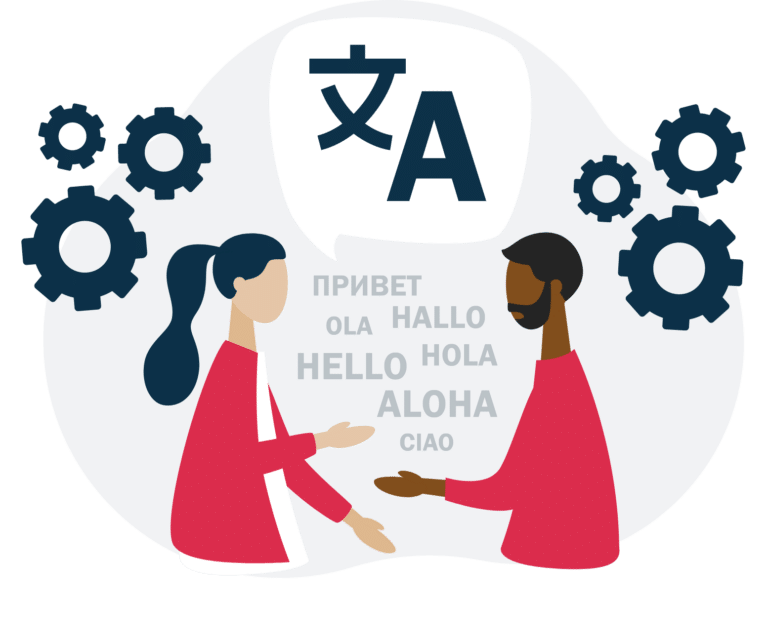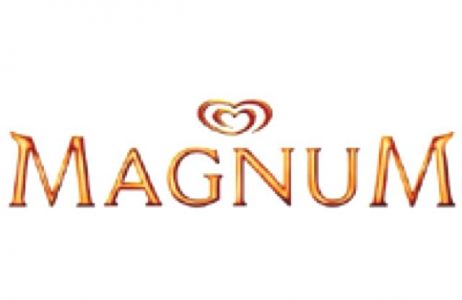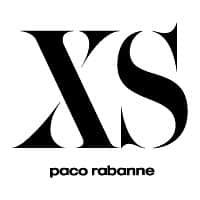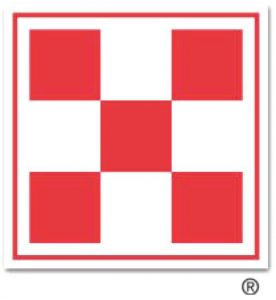Sardinian Language Services
Order High-Quality Sardinian Translation Services
- Translation, Transcriptions, Voiceover, Subtitling and more
- Quick Turnaround
- Native Language Experts
GoLocalise takes your Sardinian content to new places
GoLocalise specialises in professional English to Sardinian and Sardinian to English translation. We can also translate Sardinian to and from over 600 different languages.
GoLocalise is the only translation agency offering translations from Sardinian to any language in the world.
Sardinian services you can trust Quality Assured Sardinian Translations
The most important consideration when selecting a translation agency to handle your Sardinian translation is trust. Only professional translators whose native language is Sardinian carry out our English to Sardinian translations. Here’s why you should choose us:
- Strict Quality Control Process to Ensure Accuracy at Each Stage
- Quick Turnaround Time
- Sardinian Translation Services in Over 600 Languages
- Value-Based Pricing
- Human Language Experts
Offering High-Quality English to Sardinian Translation Services
GoLocalise is proud to provide a comprehensive Sardinian translation service, specialising in audio and video content and tailored to our clients’ needs
Sardinian to English Translation Services? Yes, We Offer This Too!
We also offer high-quality translation from Sardinian to English with a quick turnaround. We make sure that all information and nuances are properly communicated.
Thanks to our native English translators who are not only linguists and language enthusiasts, but also carry expertise in specialist subjects such as law, marketing, business, economics, physics, medicine, IT and more.
Comprehensive Audio and Video Sardinian Translation Services to Overcome Localisation Challenges!
With our expertise in re-versioning audio and video content, we can help you access new markets and promote your content. You will receive a comprehensive, cost-effective, and trouble-free video translation service. We can do everything from transcribing, translating, and voicing a video, to creating Sardinian subtitles and artistically modifying captions or on-screen text for a foreign language version of your film.
Send Your Project Viral with the Help of the UK’s Leading Sardinian Subtitling Company.
Subtitles occur on the screen as text in reaction to the characters’ speech or dialogue. They are typically used to transform media into a language that the audience can comprehend. If subtitles are not accurate to the spoken word on screen, the viewers’ understanding of the content can be negatively impacted. Precisely created subtitles, on the other hand, enhance the value of your video content.
That’s why we have professional linguists in place to create subtitles for your film or other video content. Our team consists of both local and foreign resources to ensure that every uttered word in another language is correctly translated.
Get High-Quality Sardinian Transcription Services for Your Audio and Video Content!
We provide Sardinian transcription services for your audio and video files. If required, we can also arrange for that French transcription to be translated into over 600 different languages. You can rest assured that your Sardinian transcriptions are returned on time and with our guarantee of quality.
Offering Sardinian Voice Over Services Delivered by Professional and Native Voice Artists!
Whether you are looking for a Sardinian voice over artist for your TV commercial, in-store announcement, animation, or any other form of content, look no further than our native Sardinian voice over services. We are a reliable voice over agency with professional voice over talents who can perform in a variety of languages and dialects for a range of purposes. No matter how complicated your voice over requirements are, we guarantee you the quickest possible turnaround with top quality. Here are some convincing reasons to choose our Sardinian voice over services:
- State-of-the-art sound recording studios in London
- Specialising in Sardinian script translations for TV, mobile, advertising, video games, and more
- Sardinian voice over artists (actors, radio broadcasters and TV presenters) record in Sardinian or even English with a Sardinian accent
We provide Sardinian audio recording services for the following projects:
- E-learning materials
- Online courses
- Training and educational recordings
- TV/radio commercials and spots
- Podcasts
- Audiobooks
- Narration for films & documentaries narration
- Corporate videos
- Corporate business presentations
- PowerPoint presentations
- Sales videos
- Sports broadcasts
- Telephony (IVR voice prompts/on-hold messages)
- Location sound
- Voice over internet protocol (VoIP) systems
- Airlines, trains, elevators/lifts, ATMs,
- In-store announcements
- Conferences/shows
- Voices for video games
- Characters and cartoons
- Lip-synching and dubbing for films & animation.
Create high impact, first time with GoLocalise as your audio and video translation service provider
- WOW your clients with first-class translations carried out by translation experts in that particular industry sector.
- Stringent quality control processes - subtitling (English) templates created and checked in-house, and timed to professional standards.
- Industry leading subtitling software to create subtitles that are perfectly timed to the exact frame and aesthetically positioned around shot changes.
- Your message faithfully and accurately delivered by experienced native subtitlers only.
- All translations are thoroughly quality checked by our experienced project managers before final delivery.
- You will receive ready-to-use videos with translated burnt-in subtitles - open captions - that are ready to be uploaded to your website. You can customise the style and look of the subtitles (font, size, colour, positioning, etc.).
- If you prefer to give your clients or viewers flexibility, why not go for subtitles that can be switched on and off in multiple languages? You can receive closed captions in the format of your choice – ready to be uploaded to YouTube or Vimeo channels, DVD or Blu-Ray.
- Go the extra mile by localising all your content. On-screen text and captions in your video can be translated and graphically edited, so that you receive a flawless foreign language version.

You deserve the best!
Leave your project to the experts at GoLocalise so that you can relax and be assured of getting top-notch results
Every single detail will be analysed, studied and looked
after so that you do not need to worry. Some would say it’s not too classy to blow our own trumpet… but we just like to point out two very important details. We have achieved ISO 9001 Quality Management certification in recognition of our consistent performance and high standards, and ISO 14001 Environmental Management because we care about our planet! And if you are still curious and want to know more about us, why not have a look at our studio page.
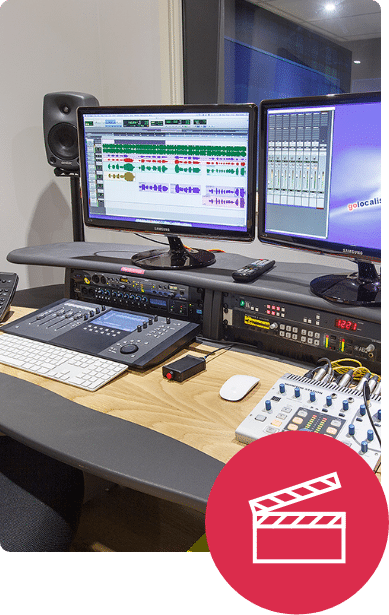
Working alongside translation & production companies
Having a strong audiovisual department on your side makes all the difference!
With GoLocalise you get an experienced and motivated team of professionals that work regularly alongside translation and production companies. We understand the technical requirements necessary to produce perfect foreign language and English voice overs. Our project managers will assist you along the way and we’ll break down the process and present it to you without the big words or technical industry jargon, so you don’t need to worry about the technical aspects and can simply concentrate on growing your business. By working with GoLocalise you’ll be able to offer additional services, i.e., voice over, subtitling and translation to your clients, with a partner who will deliver and on whom you can truly rely.
When working with translation companies we provide easy-to-follow guidelines so that you can provide your own translations for us to “convert” into subtitles, or voice over your translated scripts. Or if you prefer, we can take the entire project off your hands and keep things simple for you – it’ your call! We’re equally used to working with production companies, so we can deliver your translations or subtitles in any language and format of your choice – either burning-in the subtitles onto the video for you, or supplying you with XML or PNG files for you to do yourself – Adobe After Effects and Final Cut Pro ready files.
Reach your target market
Don’t leave your important communication to chance. Make sure your message is clearly understood by your audience and choose GoLocalise for your next voice over project.
We have thousands of passionate and professional voice over artists ready to work with you. No matter the type of voice you are looking for, we’ll either have it in our books or find it and source it for you. We’ll organise a casting and ensure you get the perfect voice to suit your needs.
You will also benefit from having your own dedicated project manager – a single point of contact – to guide you through your project, answer any questions you may have and make things a whole lot easier.
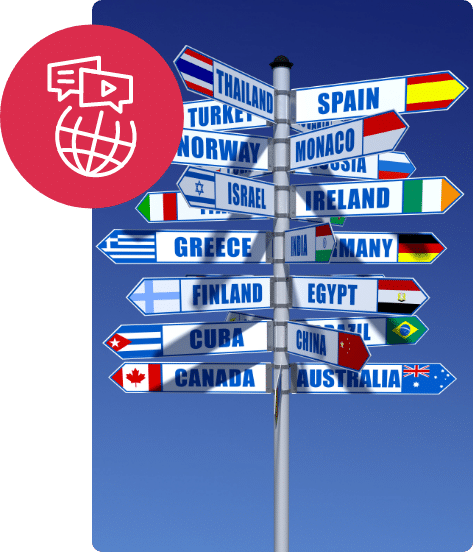

Meet your dedicated project manager
Your project will be in the safe hands of one of our multilingual project managers.
They will guide you through every step and ensure you understand the process. Our industry has a tendency to use lots of technical jargon but your dedicated project manager will be on-hand to untangle the mess and explain all you need to know to ensure you only pay for what you need.
If you need help in choosing the right voice over talent to deliver your message then just ask your project manager. From booking our voice over recording studios to ensuring you project is delivered on time in your chosen media, relax and let your experienced project manager take care of everything. You will receive unparalleled attention to detail and customer focus at competitive prices. You’ll wish everything was as easy as a GoLocalise voice over!
Perfect voice over recording studios
Your recordings will sound beautiful and crystal clear thanks to our high-end studio soundproofing and audio equipment, i.e. ProTools HD and Neumann microphones.
Maximise your budget by reducing the need for retakes with the help of our experienced in-house sound engineers who will professionally capture and edit your audio. And for those recordings in languages which neither you nor your client speak, we’ll bring a qualified pro to your session to add that essential ingredient. To make you feel right at home, we provide high-speed Wi-Fi Internet and air-con is available. And last but not least, we have the biggest cookie jar you’ve ever seen, that’ll make your custom brew taste even sweeter!
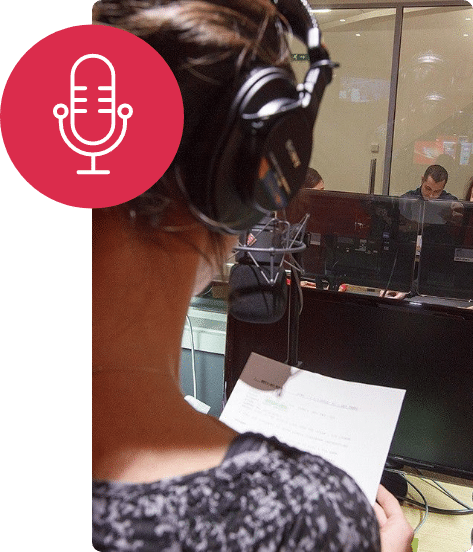
Sardinian Language Facts
Sardinian or Sard (sardu [ˈsaɾdu], limba sarda [ˈlimba ˈzaɾda] or lìngua sarda [ˈliŋɡwa ˈzaɾda]) is a Romance language spoken by the Sardinians on the Western Mediterranean island of Sardinia.
Many Romance linguists consider it the language that is closest to Latin among all its genealogical descendants. However, it has also incorporated elements of a Pre-Latin (mostly Paleo-Sardinian and, to a much lesser degree, Punic) substratum, as well as a Byzantine Greek, Catalan, Spanish and Italian superstratum. These elements originate in the political history of Sardinia, whose indigenous society experienced for centuries competition and at times conflict with a series of colonizing newcomers: before the Middle Ages, the island was for a time a Byzantine possession; then, after a significant period of self-rule with the Judicates, it came during the late Middle Ages into the Iberian sphere of influence; and finally, from the early 18th century onward, under the Savoyard and contemporary Italian one, following since then the country’s linguistic policies which led to diglossia.
The original character of the Sardinian language among the Romance idioms has long been known among linguists. After a long strife for the acknowledgement of the island’s cultural patrimony, in 1997, Sardinian, along with the other languages spoken therein, managed to be recognized by regional law in Sardinia without challenge by the central government, and in 1999, Sardinian and eleven other “historical linguistic minorities”, i.e. locally indigenous, and not foreign-grown, minority languages of Italy (minoranze linguistiche storiche, as defined by the legislator) were similarly recognized as such by national law (specifically, Law No. 482/1999). Among these, Sardinian is notable as having, in terms of absolute numbers, the largest community of speakers.
Although the Sardinian-speaking community can be said to share “a high level of linguistic awareness”, policies eventually fostering language loss and assimilation have considerably affected Sardinian, whose actual speakers have become noticeably reduced in numbers over the last century; The Sardinian adult population would today no longer be able to carry on a single conversation in the ethnic language, as it is used exclusively by 0.6 percent of the total, and less than 15 percent of the new generations were reported to have been passed down some residual Sardinian in a deteriorated form described by linguist Roberto Bolognesi as “an ungrammatical slang”.
The rather fragile and precarious state in which the Sardinian language now finds itself, where its use has been discouraged and consequently reduced even within the family sphere, is illustrated by the Euromosaic report, in which Sardinian “is in 43rd place in the ranking of the 50 languages taken into consideration and of which were analysed (a) use in the family, (b) cultural reproduction, (c) use in the community, (d) prestige, (e) use in institutions, (f) use in education”.
As the Sardinians have almost completely assimilated into the Italian national mores, including in terms of onomastics, and therefore now only happen to keep but a scant and fragmentary knowledge of their native and once first spoken language, limited in both scope and frequency of use, Sardinian has been classified by UNESCO as “definitely endangered”. In fact, the intergenerational chain of transmission appears to have been broken since at least the 1960s, in such a way that the younger generations, who are predominantly Italian monolinguals, do not identify themselves with the indigenous tongue, which is now reduced to the memory of “little more than the language of their grandparents”.
As the long- to even medium-term future of the Sardinian language looks far from secure in the present circumstances, Martin Harris concluded in 2003 that, assuming the continuation of present trends to language death, it was possible that there would not be a Sardinian language of which to speak in the future, being referred to by linguists as the mere substratum of the now-prevailing idiom, i.e. Italian articulated in its own Sardinian-influenced variety, which may come to wholly supplant the islanders’ once living native tongue.
Watch this video to find out more
Frequently Asked Questions
What our happy customers say
Thomas Kennedy
Designer at Atlas Knowledge

Josie Gallo
Content Co-ordinator at Medical Aid Films
Stefanie Smith
Producer at Education First
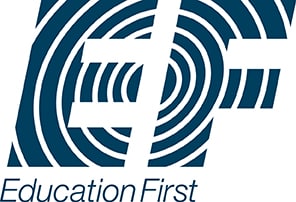
Jo Samuel
Animator at Pixel Circus

Jonathan Lapps
Account Manager at Epipheo
Adam Ruddick
Head of Production at Casual Films

The Complete Solution To Adapt Your Content
Looking to get your entire project under one roof? Look no further, we can help you make life easier for you!

- Neumann Microphones
- On-hand Sound Engineers
- Talented Voice Over Actors
- State-of-the-art Recording Studios

- Tailored to Your Business
- Stringent Quality Control Process
- Laser-Focused Project Managers
- Global Network of 600+ Languages

- Professional Subtitlers
- Open/Closed Captions & Web
- Industry-Standard Software
- Subtitle Burn-in & Graphic Editing

- Improve accessibility
- Reach a wider audience
- Increased SEO and video views
- Maximise your video's engagement
